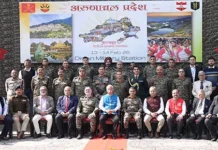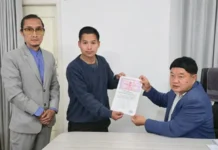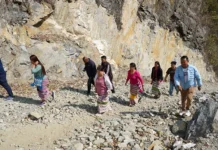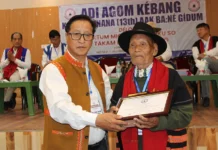ITANAGAR, 5 Mar: Electoral reforms in student union elections took centre stage on the second day of the two-day state-level symposium organised here by the Arunachal Youth Parliament (AYP).
Speaking on the topic ‘Student politics and beyond: Unlocking the potential of young people in Arunachal,’ State Information Commissioner Gumjum Haider said that “there
should be reforms in student organisations, be it community, district, or state level.”
“There should be some limitations, or criteria, perhaps age, and marital status, in student politics,” he suggested.
Advocate SD Loda said: “We have to unlock our potential. The potential is within us and the key to unlocking it is also within us. We should work towards engaging ourselves to come out with productive solutions to our problems, and it can only be achieved with the help of the government.”
“The government cannot just become job-generators for the youths. There should be a specific mechanism and policies to redress this,” he added.
Speaking about electing wrong persons to leadership positions of student organisations, Loda said that “losing a good leader means losing a generation, because we cannot imagine a good society if wrong people are elected to power.”
He also advised the youths to “pick up the responsibility of protecting and conserving the environment.”
“Any form of development should be sustainable in terms of environment, flora, fauna, and the planet’s ecosystem,” he added.
The session was moderated by Arunachal Pradesh Union of Working Journalists Vice President Ranju Dodum.
In the competition section, Dera Natung Government College was adjudged the ‘most disciplined college’, while Jumli Ninu of the Arunachal Law Academy was adjudged the ‘best student speaker of the symposium’.
A feedback session was also organised as part of the two-day event, wherein students representing their colleges and institutes presented recommendations and suggestions on the topics of the symposium.
All the participants, including the title winners, were recognised with certificates.
The two-day symposium was attended by more than 250 students from higher education institutes of the Itanagar Capital Region.




